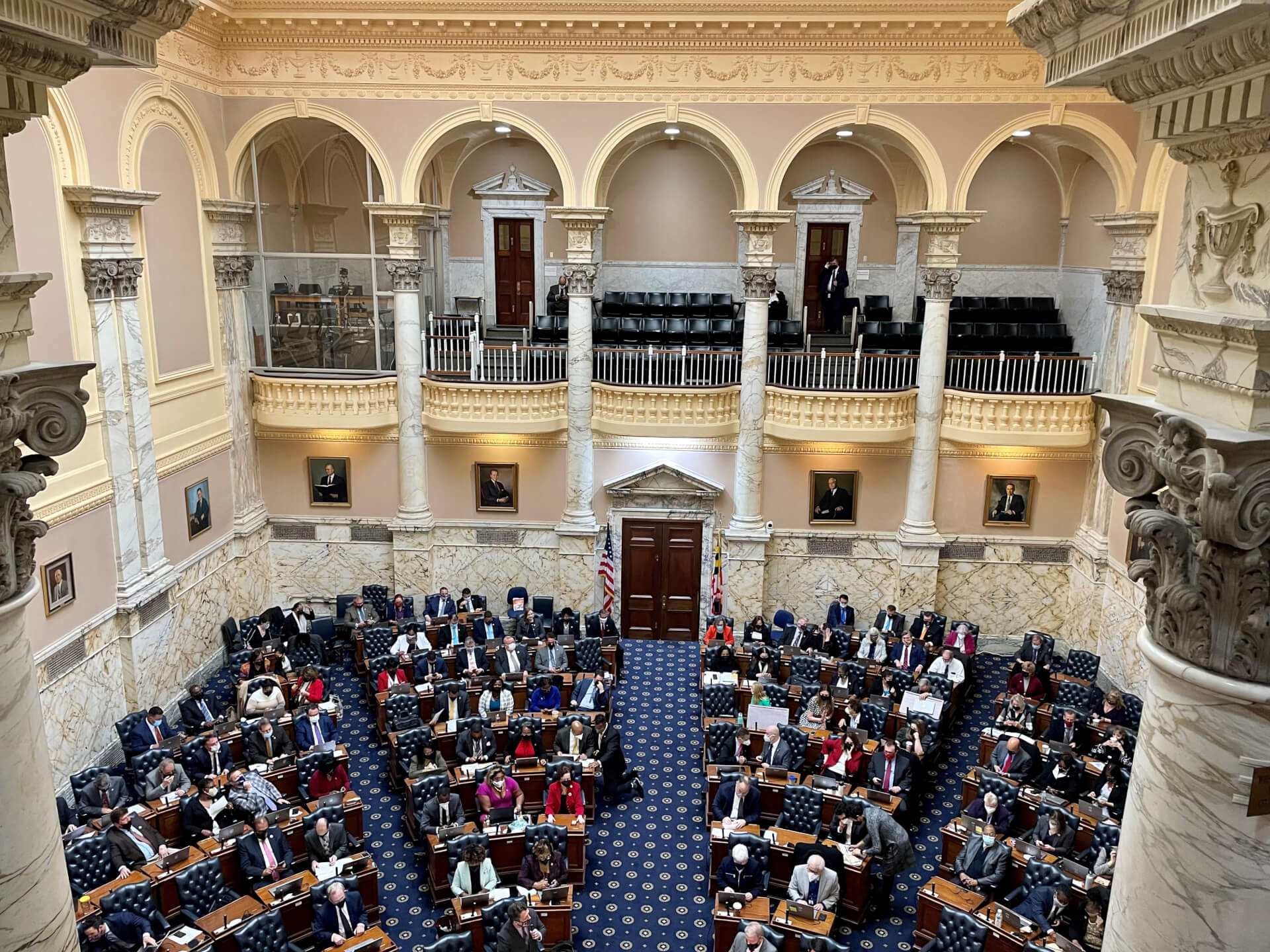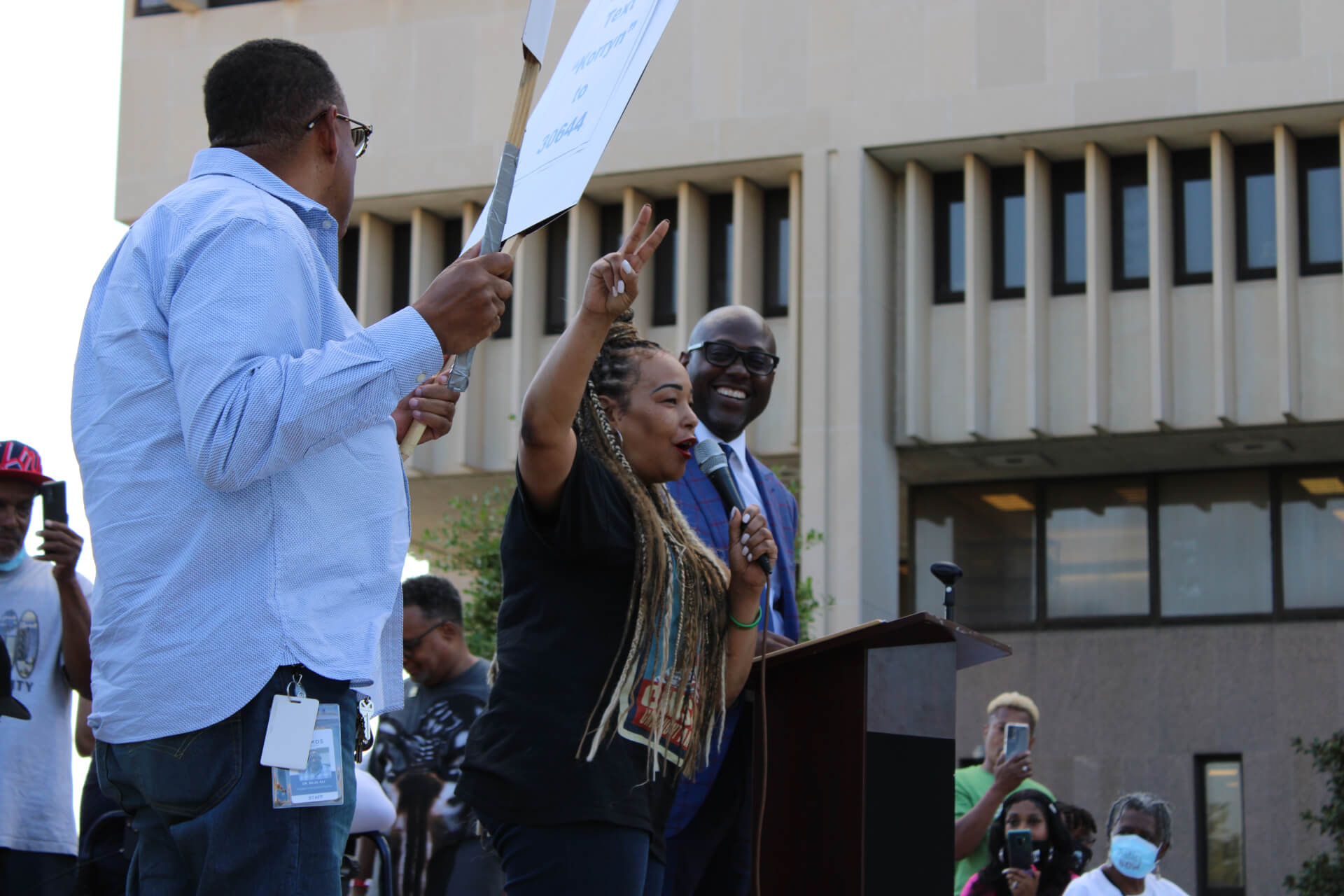
Across the state and country, the calls for police reform are growing — no longer a question of whether or when, but how.
As we debate the how, reformers are facing backlash at both the federal and local levels. And as the list of names of those who’ve died at the hands of the police expands, it’s clear that incremental reform is not sufficient. If we want systemic change in Maryland, we must repeal the Law Enforcement Officers’ Bill of Rights (LEOBR) and revamp local collective bargaining agreements.
In 1973, Maryland became the first of 16 states to institute a law enforcement officers’ bill of rights, which protects officers from investigation and prosecution over misconduct by affording them additional privileges beyond what everyday citizens are guaranteed. Why is this such a huge problem?
If a formal complaint is lodged against a law enforcement officer, that record can be expunged after only three years have passed, following final disposition by the law enforcement agency or hearing board. This expungement wipes clean any record that could give departments pause in hiring and promotion, and the public can never gain knowledge of an officer’s record at all.
Another problem is that LEOBR allows department chiefs to select who presides over their own officers’ disciplinary hearings. The hearing boards are composed of at least three voting members appointed by the chief and selected from law enforcement officers within that law enforcement agency. This standardized procedure leaves little confidence in a fair and balanced hearing, given the fact that these hearings are essentially kept in-house.
LEOBR also sets time limitations on presenting complaints and administrative charges, beyond which they will no longer be accepted and recorded. The legislation also mandates a five-day delay before an officer accused of wrongdoing can even be questioned.
A bill of rights, traditionally, is intended to protect citizens from government intrusion. LEOBR, conversely, is designed to protect government actors from public accountability. Repealing LEOBR is one of the American Civil Liberties Union of Maryland’s legislative priorities, and over 60 organizations have signed on to support the repeal. It is time to join the call and return the rights to the people.
Revamp collective bargaining agreements with the Fraternal Order of the Police
The special rights given to officers through LEOBR are cemented in the collective bargaining agreements set locally by the Fraternal Order of Police. There is language in these agreements that set the precedent for implementing LEOBR’s special rights and further limiting county-level transparency and accountability.
Montgomery County’s 2019 130-page agreement (expired; awaiting this year’s) between FOP Lodge 35 and the Montgomery County government is a case in point, and several other provisions raise serious red flags.
First, the agreement prevails over any new or amended county law enforcement policy reforms. Article 61, Section C (page 110) precludes any policies that conflict with the agreement, including disciplinary action. This is where any newly introduced reform legislation could be stymied by the county’s collective bargaining agreement.
Second, there are time limits placed on the life of a complaint, disciplinary action or reprimand, which can all be expunged (removed from personnel files) between one and five years. “The expungement method shall be the shredding of the physical file” (Article 51. Personnel Files). Further, “a supervisory file is reviewable by the subject employee on request, and is to be safeguarded from review by any other individual except on a need to know basis as provided in §B.8.” A major obstacle lies in proving the “need to know.” The common argument that police reform should focus on dealing with the “bad apples” is a distraction from what is actually at play here: systemic concealment and inordinate institutional protections.
Third, in the event of arbitration proceedings between the FOP and the county, the information will be considered confidential and “shall not be referenced in any other forum” (Article 8, Contract Grievance Procedure). This policy prevents the community from understanding the extent of poor behavior within the police department — and blocks access to such information.
Fourth, the current agreement with the FOP (Article 43, Discipline, p. 84) creates the option for an alternate hearing board from that of LEOBR, which is composed of at least three voting members appointed by the chief. Under the FOP agreement, an alternate hearing board can include one officer selected by the chief, one officer selected by the union, and a neutral labor arbitrator jointly agreed upon by the chief and the union. This alternate affords the FOP even more influence over the outcome than the state-level LEOBR.
Provisions like these — and there are many more that deserve scrutiny — are not uncommon in agreements across the country, and they are protected and upheld by Collective Bargaining Laws.
Late last month, Montgomery County Council members Hans Riemer and Craig Rice introduced Expedited Bill 34-20, which looks at collective bargaining in the disciplinary process, particularly regarding the composition and role of hearing boards. This is the start of an important dialogue, and we must ensure legislative reform is more than mere window dressing.
Law enforcement officers should have the same rights, privileges and protections that are upheld for everyday residents — not special rights that allow for imbalanced protections and concealment of wrongdoing. We need reform that gets at the heart of the issues we face today, and we need it now.
— JOE SHAFFNER
The writer is a senior communications manager with a Washington, D.C., think tank and a volunteer with the Montgomery County chapter of the American Civil Liberties Union of Maryland.



 Creative Commons Attribution
Creative Commons Attribution